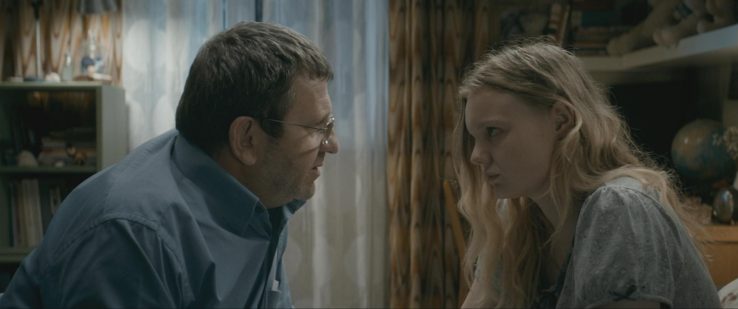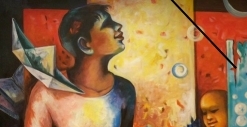My score: 4.5 (out of 5) Rotten Tomatoes: 92%
The recent Vancouver Film Festival was a great opportunity to catch the new movie from the director of “4 Months, 3 Weeks and 2 Days” (probably the best known Romanian movie of recent time).
Cristian Mungiu’s “Graduation” is about a doctor whose greatest ambition is for his daughter to pass her final school exams and get a scholarship in a UK college. But more than a personal story of a father who desperately wants his daughter to get away and start a life in “a normal place”, it’s a story about generations.
A generation of people who were young and hopeful when communism fell down 25 years ago but now are disillusioned and living by the same rules of old Romania (where connections “who do you know” are the only way to make things work). And the young generation who grew up in a free country, but who are made to live by the same rules.
It’s the second Romanian movie that I have watched, that explores the subject of young people infantilized by their parents. “Child’s Pose” was about a mother whose son ran over a child, and that uses her connections to exonerate him. Both movies reflect a society in which parents who have accumulated valuable connections over a lifetime, are much more well-adjusted to life than young people. And if you think about all the technological changes that occurred during the last 20 years – all the new jobs, new opportunities, new ways to connect to the world – all those things that make young people in developed countries often more well-adjusted than their parents, Romania’s reality, as reflected here, is depressing.
But despite the critical tone of the movie, it’s not without hope. Even though people rely on connections and bribery to achieve their goals, at least they don’t feel comfortable doing so, and they mostly agree that Western Europe’s rule of law and honest professionalism is a better way to structure the society. Also, the gain pursued by the protagonists in both movies isn’t that of personal profit but the well-being of their loved ones. And eventually, the young people in both movies assert their independence and willingness to take responsibility.
Compare this to Russian movies – at least those that have the courage to tell the truth. They display a society without strong family ties, ruled by unashamed cynicism and naked gain, and that has broken away from the civilizing pull of the West (if it ever had one). Romanians, it seems on the other hand, still have hope.


